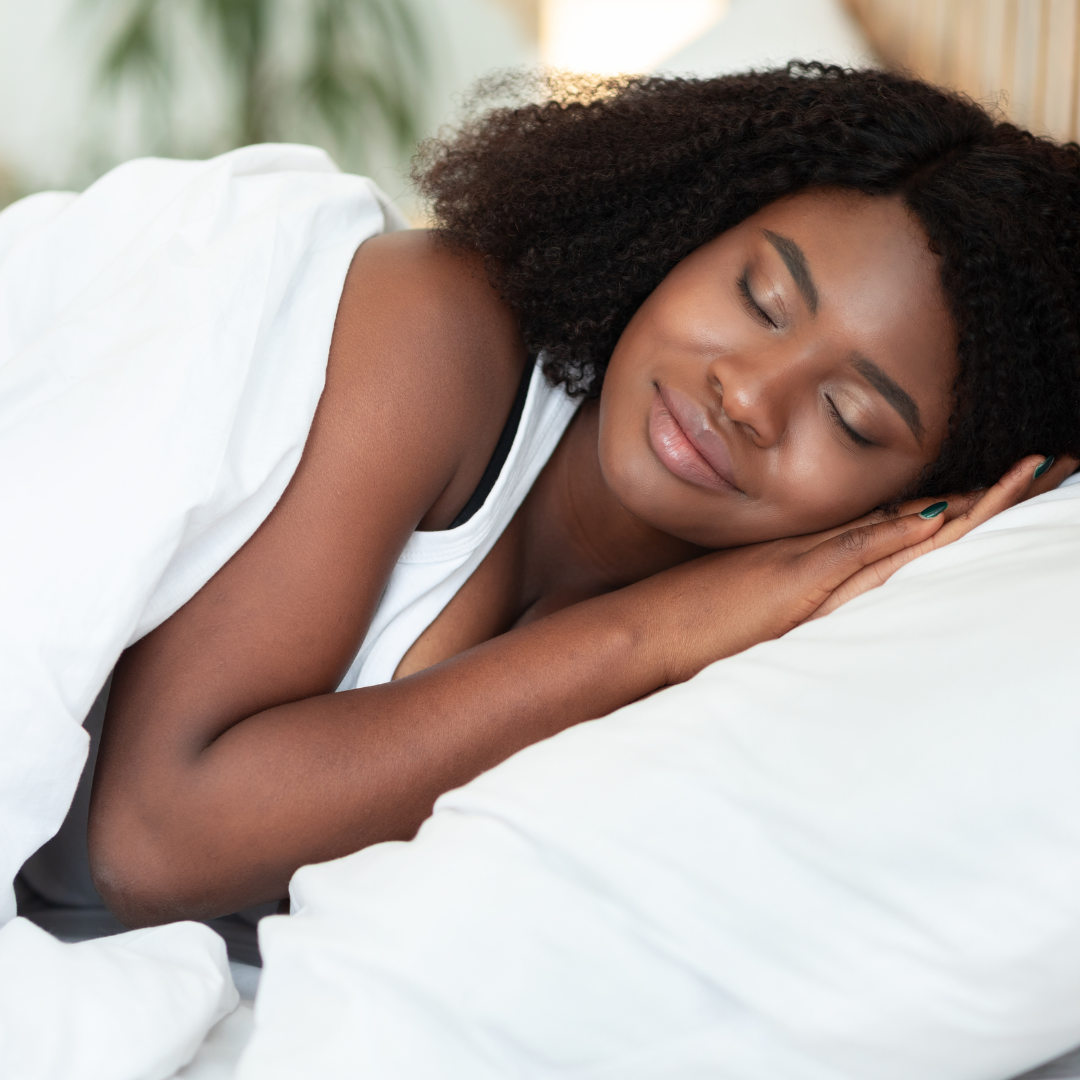
17 Dec Say Goodbye to Nighttime Anxiety: Sleep Solutions You Can Trust
Getting the rest you need can feel impossible when anxiety and racing thoughts take over the moment your head hits the pillow. For many, the constant busyness of the day keeps anxious feelings at bay, only for them to resurface as soon as it’s finally time to relax.
Nighttime anxiety can create a frustrating cycle—anxiety disrupts sleep, and poor sleep worsens anxiety. This is a very common issue for busy, on-the-go people, and you’re not alone! This week, I want to explore how anxiety impacts sleep and share natural strategies to help calm your mind and improve your rest.
The Link Between Anxiety and Sleep Quality
It’s no secret that worry makes it harder to sleep. About 50% of people with anxiety report sleep disturbances. Lack of quality rest not only makes anxiety worse but can also lead to physical and mental fatigue, creating a vicious cycle.
Anxiety can show up in many different ways during the night:
- Trouble falling asleep: Racing thoughts can delay sleep onset or make it hard to fall back asleep after waking.
- Nightmares: Anxiety often disrupts REM sleep, increasing the likelihood of vivid, distressing dreams that wake you up.
- Morning sluggishness: Poor sleep can leave you feeling drained and unmotivated to face the day.
Since anxiety and sleep are deeply interconnected, breaking this cycle starts with understanding how these factors interact. Tools like sleep and mood trackers can help you identify patterns, allowing you to develop personalized strategies for better rest.
5 Tips to Get Your Sleep Back On Track
.
1. Master Relaxation Techniques
Incorporating relaxation methods into your day can ease anxiety and set the stage for better sleep. Try these techniques:
- Breathing exercises: Simple practices like box breathing—inhaling, holding, and exhaling for four seconds each—can slow your heart rate and calm your mind.
- Meditation: Guided meditations are great for beginners and can help you manage racing thoughts more effectively.
- Yoga: Even gentle yoga stretches can reduce muscle tension and promote relaxation. Explore free online classes to find a style that you enjoy.
- Yoga Nidra: a guided meditation technique that involves lying down and being led through mental imagery to achieve a state of relaxation similar to sleep
.
2. Sip on Calming Herbal Teas
Certain herbal teas have soothing properties that can help ease nighttime anxiety:
- Chamomile: Contains apigenin, an antioxidant known to reduce anxiety.
- Lavender: Its calming aroma promotes relaxation and better sleep.
- Valerian root: Boosts GABA levels in the brain, which helps regulate mood and stress.
- Lemon Balm: Reduces stress and anxiety, promotes sleep, improve appetite, and eases pain and discomfort from indigestion.
.
3. Consider Supplements for Sleep Support
Supplements may help manage anxiety and improve sleep. Popular options include:
- Vitamin D3: Enhances mood and energy during the day, reducing nighttime anxiety.
- Magnesium L-Threonate: Relaxes muscles, crosses the blood-brain barrier and regulates serotonin for better sleep quality.
- Melatonin: Helps align your sleep-wake cycle and can reduce nighttime stress.
- L-theanine: Promotes relaxation and alpha brain wave generation.
.
4. Create a Soothing Bedtime Routine
A consistent nighttime routine signals your body that it’s time to wind down. Here’s how to get started:
- Stick to a schedule: Going to bed and waking up at the same time daily helps regulate your body’s internal clock.
- Limit screen time: Blue light from phones and tablets interferes with melatonin production. Swap scrolling for a book or calming music an hour before bed.
- Try aromatherapy: Scents like lavender, bergamot, or sandalwood can help ease anxiety and create a tranquil sleep environment.
- Read a bedtime story: Provides a calming distraction from the day’s stressors, allowing your mind to focus on the narrative instead of ruminating on worries.
.
5. Adjust Your Diet for Relaxation
What you eat can influence your sleep. Incorporate these tips to support relaxation:
- Avoid caffeine and alcohol: Both disrupt sleep and can increase nighttime anxiety.
- Focus on magnesium-rich foods: Leafy greens, nuts, and seeds can help relax muscles and calm your mind.
- Boost antioxidant intake: Foods like berries, spinach, and walnuts combat oxidative stress, reducing anxiety.
- Cut back on sugar: High-sugar diets can heighten anxiety and interfere with restful sleep.
.
Empowering Your Health with Seva Health
At Seva Health, my goal is to help you move from ‘surviving’ to thriving in every area of your life. When I work with my private coaching clients, we start by analyzing your overall health—like sleep and nutrition patterns—to provide personalized insights, empowering you to make informed decisions. For many, this starts with a tailor-made supplementation regimen – taking the guesswork out of the picture!
Quality sleep is achievable! By understanding your personal health needs and making targeted lifestyle choices, you can support your overall well-being at every stage of life.
Start today—because better sleep is foundational for a stronger, more resilient you now and in the future!
Looking for a personalized solution to support your health goals but don’t have time to do the research?
Click HERE to learn more about a custom supplement plan tailored to your unique needs.


No Comments